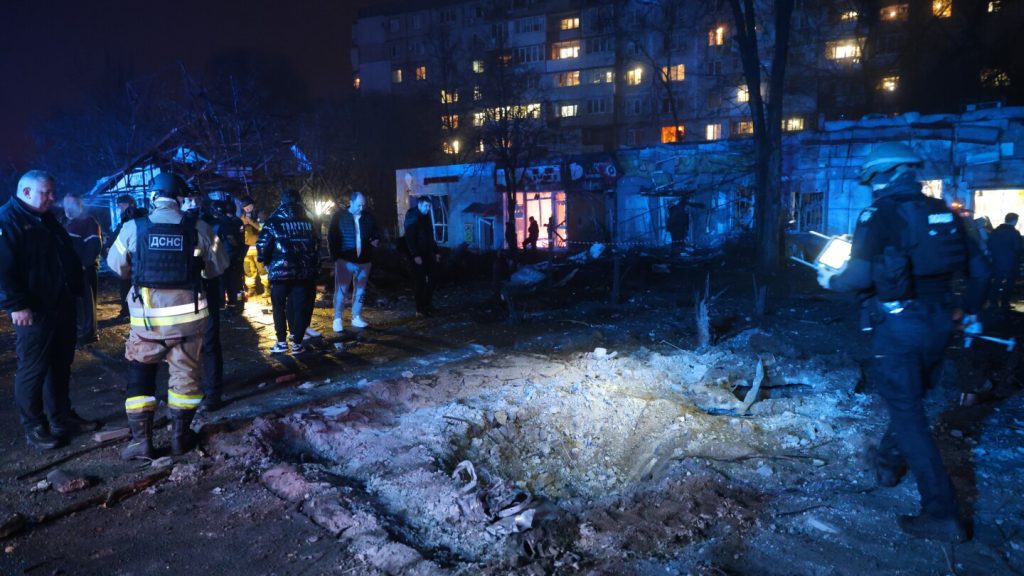Listen to the article
President Trump’s Ukraine Envoy Kellogg to Depart Amid New Peace Plan Efforts
President Donald Trump’s special envoy to Ukraine, Keith Kellogg, has informed the White House he will step down from his position in January, according to two senior administration officials speaking on condition of anonymity. The officials declined to elaborate on the reasons behind Kellogg’s departure, which comes at a critical juncture in U.S. policy toward the Russia-Ukraine conflict.
Kellogg’s exit coincides with the White House’s development of a controversial new peace plan aimed at ending Russia’s war in Ukraine. The initiative, largely coordinated by Trump envoy Steve Witkoff and Kirill Dmitriev, an adviser to Russian President Vladimir Putin, reportedly calls for significant concessions from Ukraine, including territorial cessions to Russia and abandonment of certain weaponry.
The retired Army lieutenant general has seen his role diminish in recent months as Witkoff, a real estate developer turned diplomat, has emerged as Trump’s primary intermediary with Putin and his advisers. Witkoff, alongside presidential son-in-law Jared Kushner, has also been instrumental in negotiating the fragile truce in the ongoing Israel-Hamas conflict.
Kellogg’s relationship with Trump dates back to the president’s first term. He previously served as national security adviser to former Vice President Mike Pence and as chief of staff of the National Security Council. He also briefly stepped in as acting national security adviser following the resignation of Michael Flynn, Trump’s first top national security aide.
During Trump’s previous administration, Kellogg was present for several pivotal moments that later became central to investigations into the president’s conduct. He was among administration officials who listened in on the July 2019 phone call between Trump and Ukrainian President Volodymyr Zelenskyy, during which Trump urged his counterpart to pursue investigations into then-presidential candidate Joe Biden and his son Hunter.
That conversation ultimately led to Trump’s first impeachment by the House of Representatives, though he was later acquitted by the Senate. Kellogg later stated that the call did not raise concerns for him at the time.
On January 6, 2021, hours before pro-Trump rioters stormed the U.S. Capitol, Kellogg, then serving as Pence’s national security adviser, was present for a heated exchange between Trump and his vice president. During that call, Trump pressured Pence to object to or delay the certification of Biden’s electoral victory. Kellogg later told House investigators that he recalled Trump telling Pence words to the effect of “You’re not tough enough to make the call.”
The changing of the guard in U.S. diplomatic representation on Ukraine comes at a particularly sensitive moment in the conflict. The Russia-Ukraine war, now in its third year, has shifted dramatically from its early phases, with Russian forces making incremental territorial gains in eastern Ukraine amid Ukrainian ammunition shortages and declining Western support.
The reported peace plan being developed by the Trump administration marks a significant departure from previous U.S. policy, which had emphasized support for Ukraine’s territorial integrity. Any agreement requiring Ukraine to cede territory would align more closely with Russian demands and could signal a broader shift in U.S. foreign policy priorities under Trump’s second term.
Foreign policy experts have expressed concern that such concessions could embolden Russia and set a dangerous precedent for other territorial disputes globally. However, supporters of the approach argue that a negotiated settlement, even with compromises, could end the bloodshed and allow both countries to begin rebuilding.
As Kellogg prepares to depart, questions remain about who might replace him and whether the new appointee will maintain continuity or further accelerate the administration’s apparent pivot toward a more Russia-friendly Ukraine policy.
Fact Checker
Verify the accuracy of this article using The Disinformation Commission analysis and real-time sources.




8 Comments
Interesting to see how the Ukraine peace plan is shaping up, though the reported concessions by Ukraine seem quite concerning. I wonder how this will be received by the Ukrainian government and international community.
Agreed, the details around territorial cessions and abandoning weaponry will be contentious. It’s a delicate balance to try and end the conflict.
With Kellogg leaving his post, I hope the White House can maintain continuity and cohesion in its Ukraine policy. The Russia-Ukraine conflict is incredibly complex, and consistency in the U.S. negotiating team will be crucial.
The departure of Trump’s Ukraine envoy Kellogg at this critical juncture raises some questions. His role has diminished as other envoys like Witkoff have taken the lead on negotiations. I’m curious to see how this transition impacts the peace process.
Yes, the shift in key personnel could signal changes in the U.S. approach. It will be important to monitor how the new plan progresses and whether Ukraine is willing to make the reported concessions.
It’s an interesting time for the Ukraine conflict, with changes in key U.S. personnel and the development of a new peace plan. I’ll be closely following how this situation evolves in the coming weeks and months.
The new peace plan sounds quite controversial, especially the suggested concessions from Ukraine. I wonder how this will play out diplomatically and whether it can gain traction with all the stakeholders involved.
Agreed, the territorial and weapons-related concessions will likely face strong pushback. Balancing the needs of all parties will be a major challenge in these negotiations.